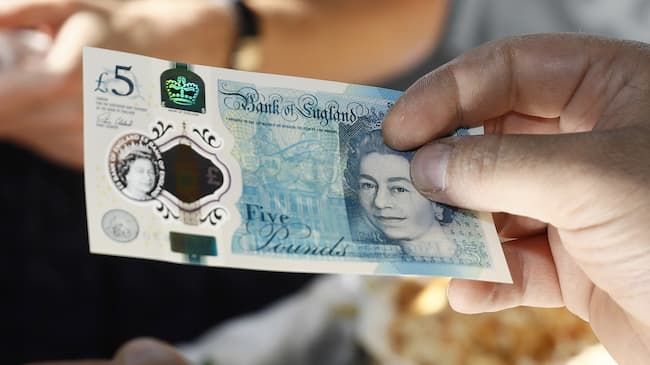British inflation has soared to the highest level since the early stages of the pandemic, official data showed Wednesday, stoking fears of a global inflationary spike as economies reopen.
The Consumer Prices Index rate hit 1.5 percent in April, attaining the highest point since March 2020 when the Covid crisis erupted, the Office for National Statistics said in a statement.
The upswing, which compared with 0.7 percent in March 2021, was fuelled by rising clothing and energy costs and came as the UK economy embarked on a phased reopening.
“Inflation rose in April, mainly due to prices rising this year compared with the falls seen at the start of the pandemic this time last year,” said chief ONS economist Grant Fitzner.
“This was seen most clearly in household utility bills and clothing prices.”
Clothing and footwear prices increased last month following many months of decline during lockdown.
Energy prices rose after the government recently increased its electricity and gas tariff cap, having cut it a year earlier.
And rising crude oil prices fed through into higher costs for motor fuels, which are now at their highest level since January 2020.
READ ALSO: Block illicit Financial Flows From Africa, Minister Advises Multinationals
Wednesday’s news has fuelled fears that global inflation could also spike this year when Britain and other nations fully emerge from Covid-19.
Commentators remain fearful that massive global Covid stimulus, combined with pent-up consumer demand, could trigger soaring inflation and spark interest rate hikes that could choke off any nascent recovery.
“At current levels, inflation is nothing to fret about, but there is rising concern that the fiscal and monetary response to the pandemic has sown the seeds of an inflationary scare further down the road,” said AJ Bell analyst Laith Khalaf.
Prime Minister Boris Johnson’s Conservative government has spent more than £350 billion ($487 billion, 406 billion euros) in emergency measures since the outbreak of Covid-19 at the start of last year.
In addition, the BoE slashed its main interest rate to a record-low 0.1 percent and pumped the economy with nearly half-a-trillion pounds of cash stimulus.
Trojan horse for inflation?
“For the moment, the Bank of England is dismissing consumer price increases as a natural bounce back from the depths of the pandemic last spring,” added Khalaf.
“But the economic recovery could be a Trojan horse, smuggling inflation into the UK, right under the nose of central bankers.”
The BoE had already warned that energy price hikes would push UK inflation beyond its 2.0-percent target this year.
Britain is meanwhile exiting lockdowns at a gradual pace, allowing the economy to further recover from pandemic fallout.
The economy began to recover strongly at the end of the first quarter, despite only minor easing of lockdowns, data showed last week.
Gross domestic product jumped 2.1 percent in March, although by not enough for the UK economy to avoid contracting overall in the first quarter.
GDP shrank by 1.5 percent in the first three months of 2021 compared with the final quarter last year.
British unemployment dipped to 4.8 percent in the first quarter, data showed Tuesday, helped by the state’s jobs furlough scheme keeping millions in work during the pandemic.
AFP














